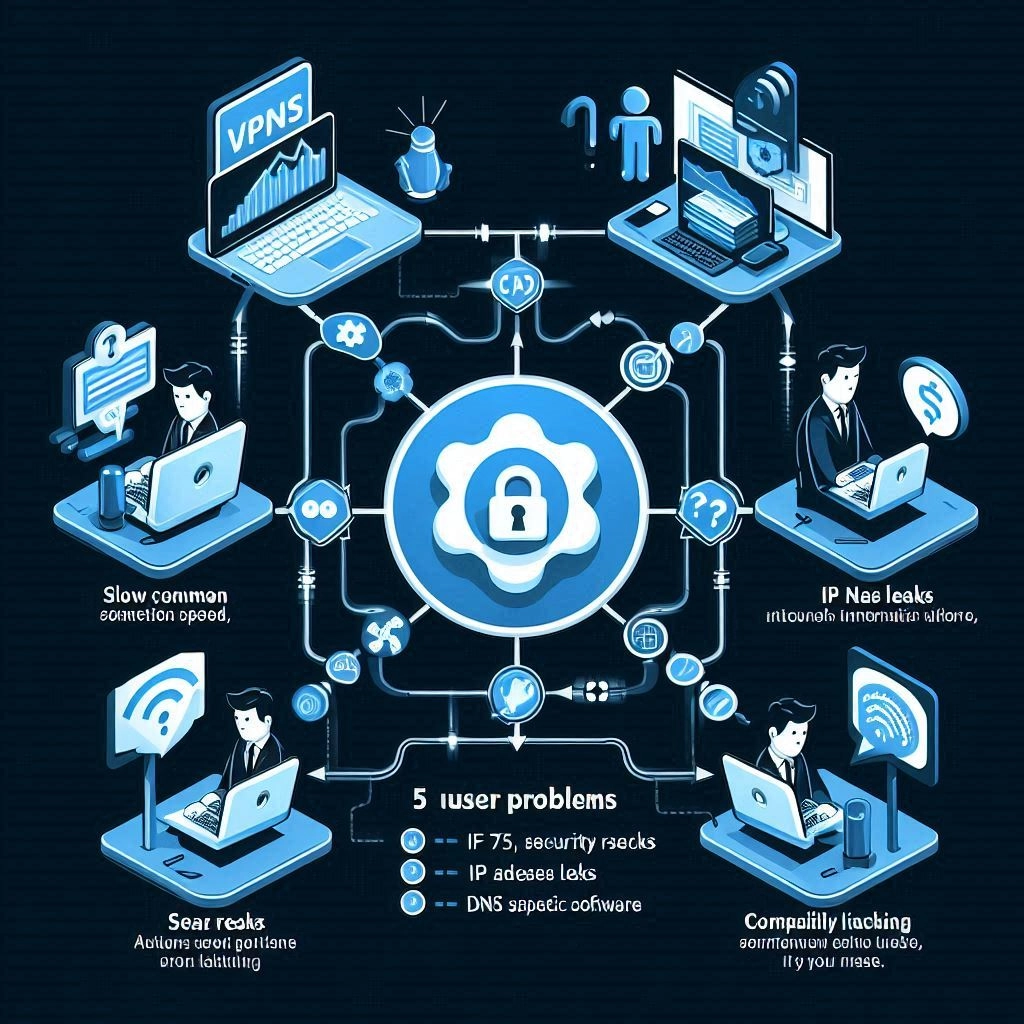Five current problems with custom VPNs

Many people resort to using a VPN to protect their data on public Wi-Fi hotspots or to encrypt information from possible eavesdropping by governments or service providers while traveling.
There are now many consumer VPNs available on the market for computers, smartphones and other mobile devices. Most of them require a small monthly subscription, some are even provided free . However, there are a number of hidden risks that users may not be aware of.
Companies realize that they cannot allow their employees to use their own consumer VPN for work. Why – The answer is in the next section of the article. The only way to ensure the protection of confidential business information when transmitted over the Internet is to use a commercial VPN service for businesses, which should be used by every employee of the company.
Top “weak points” many consumer VPN services
We present to you five common problems associated with using a VPN for ordinary users:
- Data leak. One of the key reasons for purchasing a VPN is to encrypt digital communications on the Internet to protect them from external observers. However, due to coding/configuration errors in some VPNs, data may leak outside the encrypted tunnel, rendering this process useless. There is also a risk of data leakage due to monitoring of user traffic and its possible transfer to third parties such as advertisers, government agencies and data brokers.
- Limited coverage. One of the main advantages of a VPN is that it bypasses local internet censorship laws. Users hope to access content beyond geographic restrictions by establishing an encrypted connection with various VPN-servers. However, some VPNs may limit access to global servers while promising wide geographic coverage.
- Manipulative reviews. There are many products in the VPN market, and manufacturers compete for attention by getting positive reviews on third-party websites. Some websites may publish false positive reviews for a fee, making it difficult for the user to get objective information about the quality of the VPN.
- Manual entry. The ease of use of a VPN includes the ability to automatically connect without the need to re-enter data each time you access the Internet. Some VPNs require manual user input, which is inconvenient and annoying for users.
- Insufficient confidentiality. The privacy policies of each VPN service differ from each other and do not always comply with data protection standards. Some VPNs do not provide a privacy policy for online browsing, and others may be unclear about the use of user data, despite advertising promises.
Business plays by the rules
Businesses are required to comply with data privacy laws and regulations and take care to protect the information of their customers. For companies, using individual custom VPN solutions to remotely access sensitive data may be too risky.
Although consumer VPN may be While useful for protecting personal privacy, they often fall short of business requirements. There are many different VPN options, and some of them may not provide the required level of data protection, despite their stated privacy features.
The only way to guarantee the security of customer personal data and comply with privacy laws — use a professional VPN service that is centrally managed and automatically encrypts all company data in all locations. And an excellent representative of such a service is a personal VPN server.
Private VPN server: a reliable business partner
Private VPN server is an excellent example of a professional VPN service that provides centralized management and encryption of company data. A private VPN server is usually configured and managed precisely according to the needs of the company, allowing it to have full control over the security and confidentiality of data.
On Private VPN server you can profitably buy a private VPN server. In addition, it provides extensive information about various options for renting and paying for services, server locations by geographic region, as well as other useful information from this IT-area in articles about VPN.